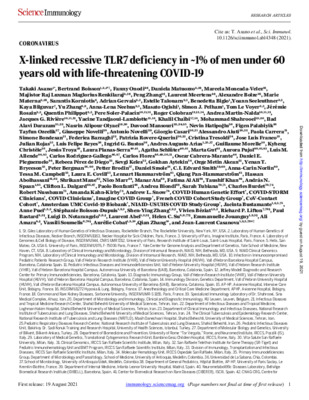About Giuseppe Novelli
17/11/2020
Professor Giuseppe Novelli (PhD) is Head of the Human Genetics Research Unit at The Tor Vergata University of Rome (Italy). He is Adjunct Professor at the University of Reno, Nevada (USA). He served for 5 years as member of the Pharmacogenetics Working Party, EMA (European Medicines Agency). He is actually member of the Italian National Committee for Biotechnology and Biosecurity of the Italian President of Council.
The primary focus in genetics of Prof. Novelli is the mapping, identification and characterization of human‑disease genes (e.g., Laron dwarfism, cystic fibrosis, DiGeorge syndrome, Mandibuloacral dysplasia, Friedrich ataxia vitamin-E-deficiency, myotonic dystrophy, psoriasis, galactosemia, hereditary nonspherocytic haemolytic anemia, atherosclerosis and myocardial infarction). One of the major interests of Prof. Novelli research is in the field of complex diseases. He identified the major loci involved in psoriasis identifying the genes implicated in the disease (published on Nature Genetics, Oct 2010) and in the atherosclerosis identifying an isoform (named loxin) of the LOX-1 receptor. He characterized this protein and established in part its biological role. Prof. Novelli demonstrated for the first time that a single nucleotide mutation in the LMNA gene is responsible of a progeroid syndrome, the mandibuloacral dysplasia (MAD) and suggest that this protein is actively involved in premature aging. The observation that mutations in the LMNA gene are responsible for premature aging has opened a new line of research called "laminopathies" which today includes more than 30 different diseases.
In the last 10 years Novelli’s lab developed original research on human stem cells, characterizing Human Cytotrophoblastic‑derived Multipotent Cells (hCTMCs) from Human Chorionic villi (CVS). These cells may be a safe and convenient source of cells for cell-based therapy, as well as an ideal target for in utero fetal gene therapy. They also developed a cancer stem cell model starting from normal human stem cells derived from amniotic and chorionic placenta membranes. These cells are able to differentiate into neural cell lineages and to undergo spontaneous transformations and acquire an NB-like phenotype. The acquisition of these technologies has allowed Prof. Novelli's laboratory to develop an advanced protocol to derive human induced pluripotent stem cells (hiPSCs) from patients affected by genetic diseases.
His contribution to cancer is documented by the identification and characterization of the human gene, DVL‑1, a Disheveled family member involved in Wnt signaling which governs several cellular processes including cell proliferation, survival, migration, differentiation, polarity and stem cell renewal; from the definition of the role of the OLR1 gene as oncogene by activation of NF-kB target genes responsible for proliferation, migration and inhibition of apoptosis and de novo lipogenesis genes, to the identification of mutations of the POLD1gene gene (DNA polymerase δ) in multisystem disorders. In addition, Prof. Novelli has been involved in pharmacogenetics and pharmacogenomics identifying new markers and developing innovative diagnostic technologies such as liquid biopsy for the characterization of mutations in different types of cancer.
Prof. Novelli is currently involved in Covid-19 host-genetics identifying for the first time life-threating mutations in genes coding for interferons (Zhang et al, Science, 2020).
